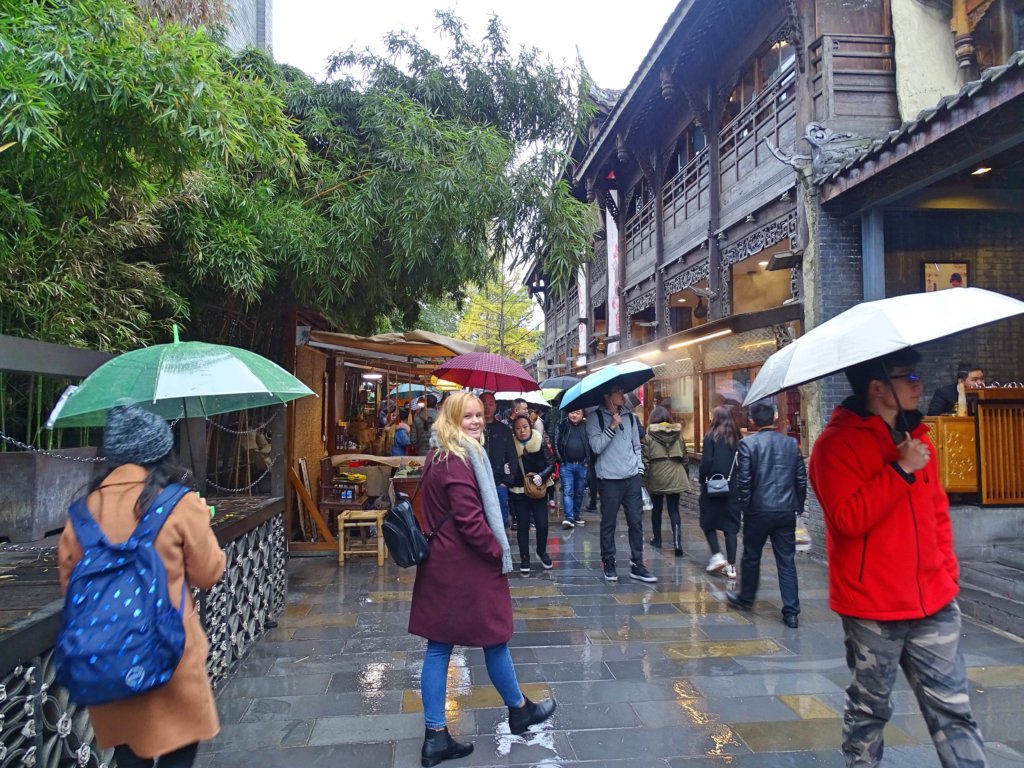So you’re looking for the truth about teaching English in China?
Perhaps you’ve heard many stories about what it’s like, it’s highs and its lows… Perhaps about its potential to make you rich, but at a cost?

Want to know what it’s really like teaching English in China? Not from somebody running from their home, but a seasoned traveller who has visited many countries?
Well you’ve come to the right place. I’m here to share with you the difficult parts of what I learnt in China.
Don’t get me wrong there are definitely reasons to teach English in China. But for me, the truth behind it means I will not be returning to this industry in China. All opinions in this article are based on my own experiences.
This site contains affiliate links. We may receive a commission for purchases made through these links, at no extra cost to you.
The visa
Working on a tourist visa
Let’s start at the beginning – perhaps you’ve got your visa sorted for China, you’re excited to get there and start teaching English. You’ve chosen to get a tourist visa instead of a work visa, based on your schools recommendation.
But you’re just about to go, and you read something about how teaching on a tourist visa isn’t legal? But the school said “that’s what everyone does – it’s fine, we just want to get you out here as quickly as possible”
Sound familiar?
Sadly this is the case in many schools in China. They are so desperately in need of English teachers, they will encourage you to come out on a tourist visa.
Let me be clear – it’s illegal!

Go back 10 years, and it was common practice to do this in China. It was also a different time where you were ‘relatively’ safe in doing so. This all started to change over the last 5 years. Police will raid schools, and if found in one on a tourist visa – you will be deported, no questions asked.
The internet contains many stories just the same, and I also heard multiple cases first hand when living in China. Sadly only the individual is held responsible for this and never the school. We heard about this before so when our school offered we refused, and said we couldn’t come out until our work visa was sorted.
The truth here? Don’t work on a tourist visa.
Getting a work visa
Now here comes the tricky part – you’re one of the people that has read up about not working on a tourist visa – that’s great! But now you’re trying to understand the work visa (Z-visa) system in China.
Let me be clear – it’s a long, complicated and expensive process! This guide to how to become an English teacher will give you all the details.
Now I’d like to share with you my experience of obtaining a work visa and arriving in China.
Before I arrived in China, I was blissfully optimistic, that I had obtained the right visa, and I would have no problems working in China.

However while living in China, I found out through colleagues, that my visa had been put through a different school in a different city – over a 3 hour flight away. Angry at this new information, I approached my boss, who confirmed that yes my colleagues were correct.
I asked, why was I not told sooner, and why was I lied to?
The truth was my school had lost their licence just a couple of months prior to my arrival, for forging documents for two teachers they wanted to employ. The government found out, the school blamed one member of staff for acting alone, who was arrested by police.
The school’s visa licence to employ foreign teachers was revoked. I have no doubt that the documents were forged on our CEO’s orders, but they did not seem bothered to lose a member of staff in return for the school remaining open.
Booking.comFortunately, they got their licence back not long after – by holding an event at the school for all of the local police children to learn some English. Or a ‘police bribe event’ as described by my own manager in his notes.
After this, I was transferred to the correct visa after spending an additional 1 month without my passport – due to the new visa process.
I don’t tell this story to scare you – but to make you aware of what we weren’t when we decided to teach in China.
The truth: Schools will lie to you over and over to get you there.

The money
Next up, let’s talk about the money you can earn in China.
Teaching English pays a lot in China. Especially if you don’t pay to do it as an internship through a company, but find a job independently.
I was paid a tidy 14,200 RMB (£1700/$2000) after tax each month, not to mention a 9000 RMB (£1000/$1200) bonus at the end of the year, and 5000 RMB (£600/$700) bonuses every 3 months. Accommodation and food was provided on top of the salary and bonuses.
We lived off 5000 RMB (£600/$700) a month, this allowed us to eat and drink like kings, travel every weekend and effectively buy anything we could have wanted.
So yes – you will be rich!!
If you need to save, it’s a good way to make a lot of money fast. After saving around 9000 RMB (£1000/$1200) a month, coming back to the UK was reasonably relaxing.
I think the only time I’d consider going back to China to teach English is if I want to buy a house in the future! You can save for a deposit in just one or two years.
=However, one difficult part about the money was the fact we were being paid 4x more than the Chinese teachers. This didn’t sit well with me.
It was also very complicated to take money out of China. At one point we lost 20,000 RMB (£2400/$2800) during an attempt to send money home. The government had seized it and we had to wait a few months before we could get the money back.
The truth about teaching English in China is: you will be loaded!
Want to know more about China?
Pick up a copy of the Lonely Planet Guide for China. Be prepared with this Lonely Planet Mandarin Phrasebook.
Chinese management
Most foreigners that work in China will work in a private school. These schools require a hefty fee to be paid by the parents, and they are run as a business not as a school.
We didn’t have a headteacher – we had a CEO.
The Chinese management needed foreign teachers to remain in the school, to allow them to charge large fees, and to make a good profit.
Their aim was to keep us happy. Whatever we wanted in the school – we could have… Even at the expense of the other Chinese teachers.
Does this sound good?

Yes don’t get me wrong it had its perks! However, the truth about teaching English in China and dealing with the Chinese management is slightly different.
Let me give you an example:
At the school, the teachers were provided with one set of food for lunch, and the children another much better set.
Two foreign teachers complained that the teachers food wasn’t good enough, and the management immediately put out some children’s food for the staff to eat, to resolve this issue.
After a week, the other foreigners we worked with were angry that some of the Chinese staff ‘got in there’ before them and ‘stole’ the nice food. After complaining again to Chinese management, they issued a warning that the good food was only for foreign staff not for Chinese staff. As mentioned above, the foreign staff could easily have afforded more food, which was not the same for the Chinese staff.
Now, to me this was inequality at its core.
Trying to reduce plastic waste?
Get this GrayL water purifier bottle now! Drink water from the tap, no matter where you are and stop buying disposable plastic. This bottle filters everything you will ever need – including bacteria and viruses.
The foreigners
They have a term amongst foreigners in China – ‘The Jaded Expat’
Now my story about food above, is just one example of the jaded expat.
The jaded expat has left their home and has moved to a country where they are treated as superior and paid as if they are superior. However, at the same time they hate everything about Chinese culture – the food is too spicy, the language too difficult, the people too lazy.
They believe life is difficult in their rich world, where they are often treated as celebrities. However, they don’t return home, they stay in the country because they need that status and money. Over time, they become bitter and selfish and at their centre – inherently racist.
I sadly worked with many people who would fall into this category, and met many more outside of my school. The type of person you meet teaching English in China, is not like the traveller or backpackers I’m used to meeting.

The people I worked with had become so jaded, they were threatened by anyone comfortable in their new home, loving the culture and the food, and appreciating the Chinese staff for the hard work they did. This meant we had a tense workplace environment.
Myself and some other colleagues also caught them bullying some children. Despite attempts from us all to get help from the staff, they would not reprimand a foreign teacher for fear of losing them.
I won’t bore you with the details, but the year became one of the most stressful of my life, and the sadness and distress they caused to my colleagues, myself and some of the children, is something I cannot forget.
The Chinese Teachers
Next up, I would like to tell you some more about the Chinese teachers I worked with within my class.
They were the nicest group of people I’ve ever met. They could not do enough for me. The Chinese management had told them they couldn’t speak to the foreigners. Something which when I started was hard to overcome. However, once I earnt their trust we had a great relationship even when I couldn’t communicate with some of them due to the language barrier.
They helped me to control my class, and also to teach on busy days. They also spent the entire day with one class. This meant they had a much closer relationship to the children than I had. They were quite literally substitute mums for the children who were aged 2- 7 years old.

The government
Discussing the government in China, is a very difficult thing to do when living in China. Not to mention downright dangerous.
Now I have left I’d like to try to give people an understanding of their control over the Chinese people. Most people fully believe in their government and everything they stand for.
But then… they know no different!
The government has such a strict control over the internet, there is no freedom of information in China.
For example, at Christmas and Easter we had to teach about these holidays as we were a Western school. However, the government warned us we were not allowed to put any religious connotations into this. This is the sad truth about teaching English in China.

The government’s control made me very sad. I found it a difficult place to live because of this lack of freedom. Even if you as a foreigner have more freedom, you will still witness oppression on a daily basis.
Teaching English in China was one of the best and worst experiences of my life. I would never actively discourage you from going – but be aware of the truth about teaching English in China. And perhaps consider Vietnam or Thailand!


Leave a Reply